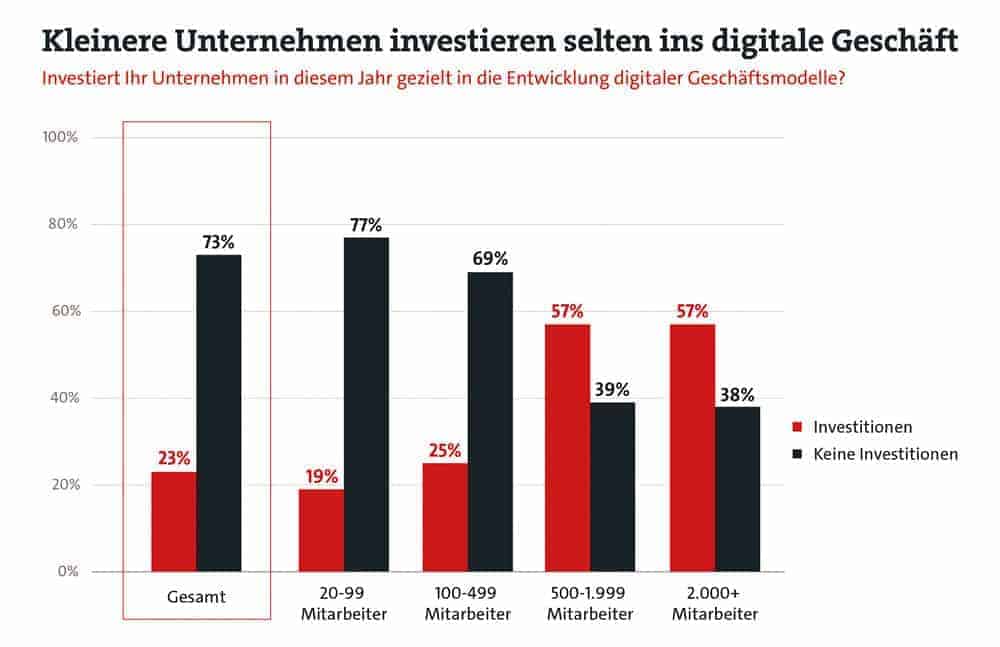

Managing directors and board members often complain that they lack the financial resources and time for digitization. This is the result of a representative survey on the state of digitization in the German economy among 604 companies with 20 or more employees commissioned by the digital association Bitkom, which was presented in the run-up to this year's Cebit.
"Many companies, especially in the SME sector, currently have bulging order books and are doing good business with their established products.
But tomorrow's business is exclusively digital. This business of tomorrow must be prepared right now, in the economic boom".
said Bitkom President Achim Berg.
"No one with responsibility for a company can seriously say, 'We have no money and no time for the future.'"
Generally speaking, German businesses are very open to digitization. Nine out of ten companies (89 percent) see it more as an opportunity for their own company, while only 8 percent perceive it predominantly as a risk.
In industry in particular, the opportunities are seen almost exclusively (99 percent). Compared to the previous year, more companies are pursuing a digital strategy.
Whereas in 2017 only 68 percent stated that they had established a digital strategy in individual areas of the company or company-wide, the figure is currently 78 percent.
The increasing prevalence of digital strategies is also leading companies to respond to changing market conditions. As a result of digitization, 37 percent are removing products and services from the market (2017: 31 percent), while 63 percent are adapting existing products and services (2017: 62 percent).
Almost every second company (48 percent) is offering new products and services in response to digitization, compared with 44 percent the previous year.
But despite this progress, the majority of companies see themselves as laggards in digitization (58 percent), and only one in three (35 percent) describe themselves as pioneers. The smaller the company, the greater its own need to catch up.
For example, 60 percent of companies with 20 to 99 employees say they are digital laggards, compared to 53 percent among those with 100 to 499 employees and 48 percent in the 500 to 1999 employee size range.
Companies with 2,000 or more employees have a completely different view. Of these, only 24 percent describe themselves as latecomers, but 74 percent as digital pioneers.
"The smaller the company, the less likely it is to see eye-to-eye digitally"
Berg said.
"It is imperative that we step up efforts to digitize Germany's SMEs."






